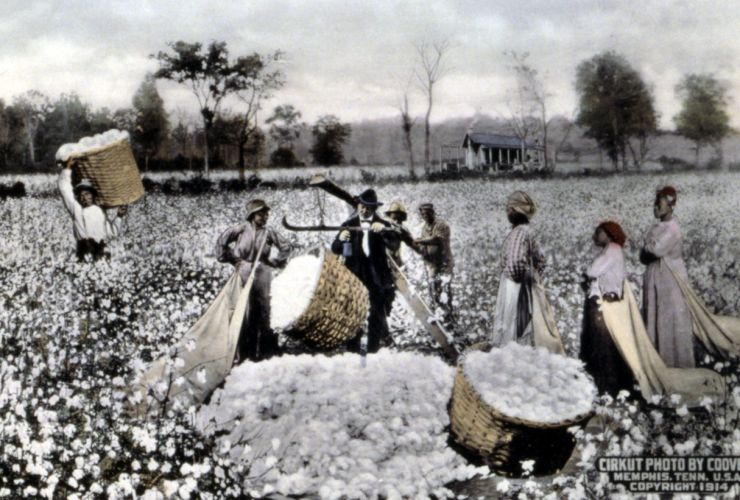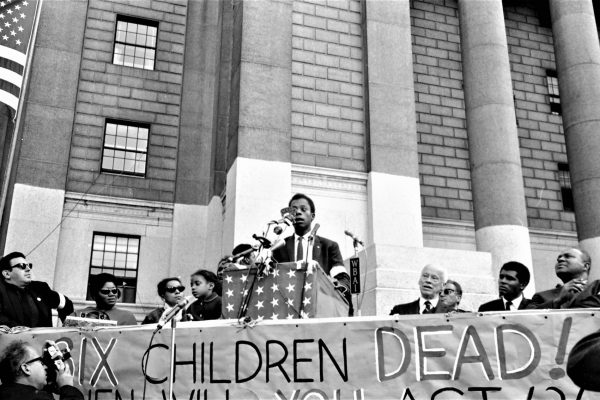Our idea of racial capitalism, as Walter Johnson explains, comes from Cedric Robinson’s Black Marxism (1983). But it has another lineage, one that predates Robinson even as it emerges from the same tradition of black radical thought to which he belonged.
In October 1979 an unsigned essay titled “Neo-Marxism and the Bogus Theory of ‘Racial Capitalism’” appeared in Ikwezi: A Black Liberation Journal of South African and Southern African Political Analysis. Published in London, the journal offered a radical alternative to the politics of both the African National Congress and the South African Communist Party. Ikwezi’s take on racial capitalism is clear from the title: the concept is not to be celebrated and embraced as a critical counterweight to European Marxism. Instead it is a product of European Marxists’ attempts to co-opt and condition black liberation struggles in southern Africa.
The essay argues, in particular, that the theory is a flawed “revisionist” strain of the South African Communist Party’s clunky attempts to build on the models of “internal colonialism” and “colonialism of a special type” that were deployed to understand the South African situation. The journal saw racial capitalism as “counter-revolutionary clap-trap” espoused by “opportunistic” white leftists seeking to play a leading role in the Azanian liberation struggles. Ikwezi located the origins of the concept in the “revisionist” thought of “dubious, white” South African Marxists, in European “Neo-Marxists” and “euro-communist” philosophers such as Nicos Poulantzas and Ernest Mandel, in the “Trotskyite” analyses of the New Left Review, and in the pages of the Review of African Political Economy—especially its 1979 special issue on “The South African Situation,” edited by Ruth First and Gavin Williams.
The essay saves most of its ire for the pamphlet Foreign Investment and the Reproduction of Racial Capitalism in South Africa, written by white South African Marxists Martin Legassick and David Hemson and published by the London-based Anti-Apartheid Movement in 1976. Legassick and Hemson misread the historical development of capitalism in South Africa, the Ikwezi essay argues, while downplaying the history of British and Dutch colonialism. The two men also marginalize the black worker as the subject of South African history by replacing him with a universal working-class subject with equal claim to the spoils of and struggle against apartheid and global capitalism. The proper analysis of the South African situation, Ikwezi says, can be found in the work of Lenin and “Comrade J.V. Stalin,” and any theory that claims South Africa’s racial orders emerge out of capitalist organization is mistaken. “To anyone familiar with the correct analysis of the Azanian liberation struggle,” Ikwezi asserts, “the contention that racialism is a creation of capitalism and can only be overthrown by a proletarian revolution is a load of shit.”
Ikwezi gets it wrong in many ways. Legassick and Hemson do not argue that South African “racialism” was the “creation of capitalism.” They argue instead that modern manifestations of racism were historically contingent on the shifting regimes of capital accumulation in South Africa and the response of the South African state to it. They suggest that the racism of British colonialism and Dutch settler colonialism was reorganized with the nineteenth-century discovery of gold in the Witwatersrand, with South Africa’s early twentieth-century industrialization, and with its attempts to secure multinational investment capital after the formal adoption of apartheid in 1949. Legassick and Hemson use the concept of racial capitalism to critique South African liberals who argued that apartheid was a “dysfunctional” aberration of capitalism that could be abolished through the improvement and better organization of South African capitalism—a position shared by many white South African capitalists, by Henry Kissinger and the U.S. State Department, and by the World Bank and the International Monetary Fund.
Despite Ikwezi’s protests, the theory of racial capitalism found a home within the writing of many South African activists and intellectuals who had emerged with the Pan Africanist Congress and within the Black Consciousness movement, especially in the wake of the Soweto Uprising. The most prominent figure in this regard was Neville Alexander, an activist and academic from the Eastern Cape involved in the Azanian People’s Organization, the Cape Action League, and the National Forum Committee. Alexander’s One Azania, One Nation: The National Question in South Africa (1979) grappled with the languages of race and nation used by the South African opposition, despairing at the reliance on the categories of the ruling national party and seeking a new political vocabulary. He is critical of the theoretical limits of both Marxism and Black Consciousness—the economic focus of one, the idealism of the other—and he laments the retrogressive and anachronistic statements of Ikwezi, viewing them as mired in contradiction and chauvinism. Alexander does not use the term “racial capitalism” in One Azania but, according to Nigel Gibson, he introduced it into the rhetoric of Black Consciousness. In his speech at the National Forum Committee convention in Hammanskraal in 1983, racial capitalism takes center stage. “The struggle against apartheid is no more than a point of departure for our liberatory efforts,” he said. “Apartheid will be eradicated with the system of racial capitalism.”
The force of Alexander’s critique is directed, in part, to those who argued for the development of “non-racialism” or “multiracialism” in South Africa without first criticizing the underlying notions of immutable races—and without, at the same time, understanding the political-economic relations that shaped them. Non-racialism differed little from multiracialism; both relied on National Party definitions of race, and neither contained a critique of imperialism or capitalism. “A non-racial capitalism is impossible in South Africa,” Alexander wrote. The future of South Africa was in an anti-racist socialism that could dismantle racial capitalism.
There are differences between the racial capitalisms of Robinson and of Alexander, Leggassick, and Hemson. While the South Africans particularize, Robinson universalizes. For Alexander, racial capitalism allows for the apprehension of the unique, indeed, the exceptional character of South Africa. It shows how the political economy of white supremacy in South Africa differed from that of the rest of the continent, and, for that matter, of the United States. For Robinson, though, racial capitalism is a global phenomenon. It is not limited to a particular nation-state, and it emerges at the beginning of European expansion. There are also methodological differences between Robinson’s use of racial capitalism and its appearance in the South African context. This is most striking in the work of Leggassick and Hemson. While Black Marxism is a work of political philosophy, Foreign Investment is a work of political economy—perhaps the most sophisticated example we have of a text attempting to use racial capitalism as political-economic method.
It is tempting to imagine a set of possible exchanges, influences, and inferences through which Alexander and Robinson were sharing notes and ideas. Certainly Robinson was well aware of the global anti-apartheid struggle. In a 1980 review in Contemporary Sociology, he penned a withering critique of the collection Race and Politics in South Africa (there, he uses the term “apartheid capitalism”). And his essay “An Inventory of Contemporary Black Politics,” published in Emergency in the early 1980s, contained a brief section on the history of multiracial organizing in the South African liberation struggle. Furthermore, his time in England at the end of the 1970s placed him at the center of a current of the global anti-apartheid struggles and of debates concerning black anti-racist and anti-imperialist politics in England. The London-based radical publisher Zed Books printed both Alexander’s One Azania, One Nation and Robinson’s Black Marxism while the journal Race & Class, published by the Institute of Race Relations, regularly featured Robinson’s work along with pieces on the situation in southern Africa.
More important than intellectual genealogy is the simultaneous emergence of the theory in different places out of parallel—indeed, overlapping—conditions. In this homology we have a sense of the functioning of the black radical tradition—what Johnson describes as “the democratic practices and revolutionary thought of black people living under conditions of racial capitalism”—not as mystical power but as a historical-material force. This simultaneity links the modern experience of black people globally, yoked together across space and compressed into the same time through the machinery of global capitalism, global white supremacy. Tellingly, despite the South African exceptionalism of Alexander’s work, he drew not only on the nation-building experiences in Guinea-Bissau and Mozambique for intellectual inspiration, but also on the theories of race developed by Gunnar Myrdal and the black sociologist Oliver Cromwell Cox to understand the U.S. experience.
The theory of racial capitalism also forces us to foreground what Du Bois, in Black Reconstruction in America (1935), called the “dark proletariat”: racialized toilers whose historical presence dislodges the pretension of a universal working-class subject, who is invariably white. Instead the struggle for freedom and justice begins with the black worker. “The emancipation of man is the emancipation of labor,” wrote Du Bois, “and the emancipation of labor is the freeing of that basic majority of workers who are yellow, brown and black.” In similar fashion, here is Alexander, anticipating Johnson’s uses of Marx on emancipation:
We have seen that the national bourgeoisie have failed to complete the democratic revolution. The middle classes cannot be consistent since their interests are, generally speaking and in their own consciousness, tied to the capitalist system. Hence only the black working class can take the task of completing the democratization of the country on its shoulders. It alone can unite all the oppressed and exploited classes.
At the same time, as black feminists have been telling us for years, if the universal subject of working-class history is a white man, that of black working-class history is always a black man. Johnson counteracts this error by centering black women in the history of the regimes of accumulation and reproduction that created the modern world. “The entire ‘pyramid’ of the Atlantic economy of the nineteenth century,” he writes, “was founded upon the capacity of enslaved women’s bodies: upon their ability to reproduce capital.” Du Bois is more succinct: “The crushing weight of slavery fell on Black Women.” Historians including Jennifer S. Morgan, Stephanie Smallwood, Thavolia Glymph, Deborah Gray White, Sarah Haley, and many, many others have written extensively on this history in the United States. In the South African context, Pumla Dineo Gqola, Zine Magubane, Nthabiseng Motsemme, Christine Qunta, Dabi Nkululeko, and Tshepo Masango Chéry are carrying out parallel work. We are living through a moment, in the United States, in South Africa, and elsewhere in the black world, when the analysis of black feminism is needed more than ever. Yet we still revert to an unreconstructed vision of racial capitalism with the male worker as its subject—and black and white men as its scribes.
This forum is featured in Race Capitalism Justice, now available in reprint. Order your copy today.








